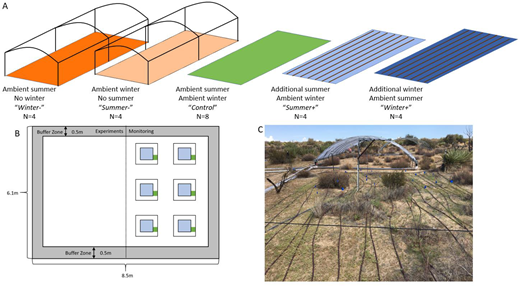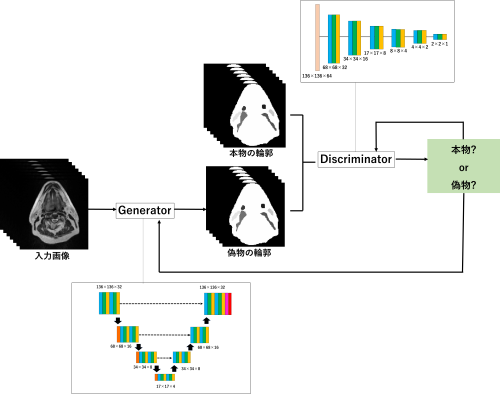2022-04-18 カリフォルニア大学リバーサイド校(UCR)
・パームスプリングス近郊で、研究チームが人工降雨を作り、2年間にわたり植物への影響を調べました。
通常、砂漠の野草や草は12月に生長を始め、6月には枯れてしまう。次に、7月に芽を出し、8月に花を咲かせる植物群落がある。・研究チームは、夏には、どんな自然降雨に加えて、余分な水が与えられると、植物がより成長することを観察しました。しかし、冬はそうではありません。「基本的に、夏に水を与えると、より大きな効果が得られます」とスパソイエビッチは述べている。
<関連情報>
- https://news.ucr.edu/articles/2022/04/18/dwindling-water-supplies-timing-rainfall-matters
- https://online.ucpress.edu/elementa/article/10/1/00014/120219/Altered-precipitation-has-asymmetric-impacts-on
降水量の変化は温暖期と冷涼期の一年生植物群落に非対称な影響を与える Altered precipitation has asymmetric impacts on annual plant communities in warm and cool growing seasons
Marko J. Spasojevic,Peter M. Homyak,G. Darrel Jenerette,Mike L. Goulden,Shane McFaul,Tesa Madsen-McQueen,Lisa Schauer,Miguel Solis
Elementa Published:February 18 2022
https://doi.org/10.1525/elementa.2021.00014

Abstract
While altered precipitation regimes can greatly impact biodiversity and ecosystem functioning, we lack a comprehensive view of how these impacts are mediated by changes to the seasonality of precipitation (i.e., whether it rains more/less in one season relative to another). Over 2 years, we examined how altered seasonal precipitation influenced annual plant biomass and species richness, Simpson’s diversity, and community composition of annual plant communities in a dryland ecosystem that receives both winter and summer rainfall and has distinct annual plant communities in each season. Using a rainfall exclusion, collection, and distribution system, we excluded precipitation and added water during each season individually and compared responses to control plots which received ambient summer and winter precipitation. In control plots, we found five times greater annual plant biomass, twice as many species, and higher diversity in winter relative to summer. Adding water increased annual plant biomass in summer only, did not change richness or diversity in either summer or winter, and modestly shifted community composition. Excluding precipitation in either season reduced annual plant biomass, richness, and Simpson’s diversity. However, in the second winter season, biomass was higher in the plots where precipitation was excluded in the previous summer seasons suggesting that reduced productivity in the summer may facilitate biomass in the winter. Our results suggest that increased precipitation in summer may have stronger short-term impacts on annual plant biodiversity and ecosystem function relative to increased winter precipitation. In contrast, decreasing precipitation may have ubiquitous negative effects on annual plants across both summer and winter but may lead to increased biomass in the following off-seasons. These patterns suggest that annual plant communities exhibit asymmetries in their community and ecosystem responses to altered seasonal precipitation and that considering the seasonality of precipitation is important for predicting the effects of altered precipitation regimes.


